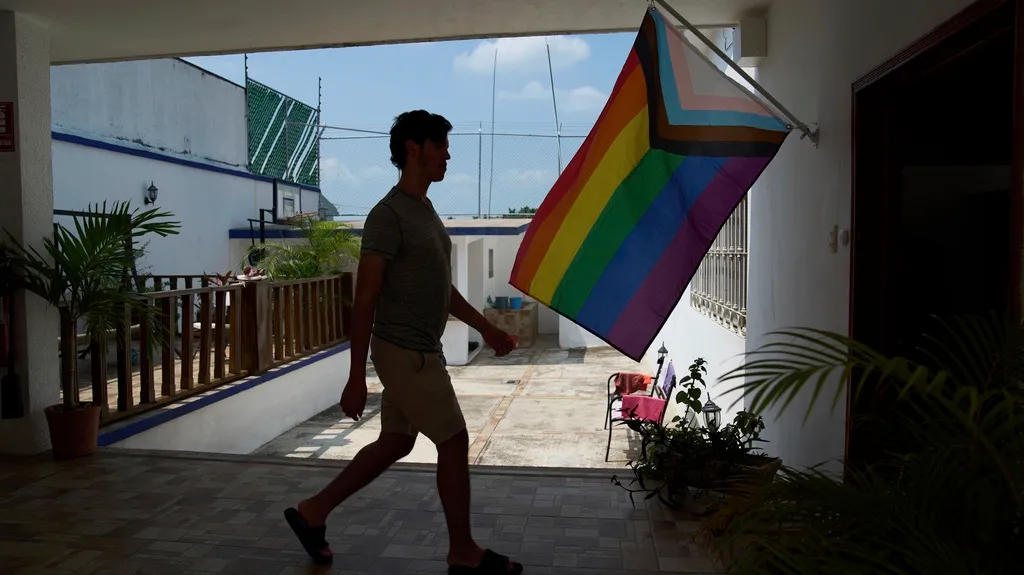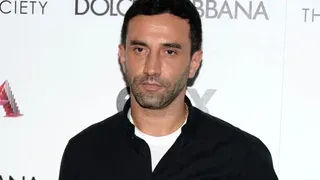November 30, 2023
Remember, Test, and Take Action says Harold J. Phillips, Director of the WH Office of National AIDS Policy in World AIDS Day Message
READ TIME: 6 MIN.
In a recent video, Harold J. Phillips, MRP, Director of the White House Office of National AIDS Policy, shares why we should pause and reflect on the importance of World AIDS Day. He also discusses a pivotal moment in our HIV response, stigma, the U.S. Government's efforts to end the HIV epidemic, and creating awareness regarding HIV criminalization.
This year marks the 35th annual World AIDS Day, and its theme is theme is 35 Remember. Philips looks back at people he knows who were impacted by the epidemic, as well as some pivotal moments.
"World AIDS Day is truly a time when we come together and and reflect upon not only those we've lost, but those living with HIV, and also our progress in HIV care, treatment and prevention and research over all of these years," Howard says in a video interview to HIV activist David Vaughan in a HIV.gov video.
"So with this 35th commemoration, I know for me some really pivotal moments include 1997 when antiretroviral therapy became more in existence. I have friends that are with us today, as a result of that pivotal moment when that became the overall standard of treatment, people living with HIV and it extended their lives.
"I also think about friends that I have lost or friends that were really influential and helping to shape my approach to both public health, social justice and addressing healthcare disparities. And many of these warriors were great teachers and influencers who I try to live up to their legacy every day as we continue in this work. And the work that many of them started as trailblazers.
Asked by Vaughan what are some things that the US government are doing to end the HIV epidemic in the United States, Phillips responds:
"Well, several things. You know, President Biden, in his budget has requested for a national PrEP program, really and truly looking at how we expand access to HIV prevention tools that can prevent individuals from becoming HIV positive. Our work to scale up the availability of HIV testing, through self tests and also other venues is moving forward. The US Business Coalition to End HIV is really looking at the work that the private sector can do and engage in HIV treatment. And all of us are scaling up the "u equals u message" ("Undetectable = Untransmittable").
"And also working to ensure that there is access to medications but also the support services that an individual needs such as housing and transportation. So there's a lot of work that's happening within the federal space. And then of course, our research partners who are continuing to do both vaccine and cure research. There's a lot that's happening within this space. And a lot of innovation that I think is also happening.
"Within the federal government, we're releasing a report that is going to talk about some of those key actions that the federal partners have engaged in over the past year or since the implementation of strategy that are going to help move us forward in our goals. And so we encourage everyone, as part of World AIDS Day to get an HIV test to learn more about HIV prevention, treatment, and to help us fight HIV stigma and discrimination.
Phillips also commented on the decrease in the national conversation about HIV and HIV related stigma and what is the federal government doing about it.
"We also know that there is a lack of access to comprehensive sexual health education in many of our schools and then also in many of our communities. We're also facing a time where there are a number of laws that have been put forward through states, especially for our transgender population that increase the amount of stigma and and discrimination...
"(It is also important) that the myths are debunked, and that the belief that HIV is over. And also the misconceptions about HIV and people who live with HIV are all out there. All of this contributes to getting in the way of individuals taking an HIV test and learning their status, seeking out prevention tools, or even staying in treatment.
"So World AIDS Day is often a time where a lot of people who may not work in HIV and AIDS or even public health, take the time to act and be part of a global movement.
He had some specific suggestions for individuals to do on this World AIDS Day to spread awareness and change outdated attitudes.
"One thing that I would suggest to people and, of course, absolutely, those are living with HIV, we need to stay on our treatment and take care of ourselves. So Holistic Health: exercise diet, getting enough sleep, making sure that we're connected to primary care so that we are we're getting screened for other chronic issues as well and also the issues of aging.
"One of the things that I would also encourage everyone to do if you don't know, please take an opportunity to find out what are the HIV related criminalization laws and policies in your particular state? We have over 25 states that still have laws on the books that are getting in the way of us achieving our HIV related goals as part of a national strategy. I encourage you to find out more. Many people are surprised when we talk about HIV criminalization laws and policies and realize that they live in a state where this is happening.
"So as part of World AIDS Day, for those of you who want to go beyond just getting an HIV test or continuing to take care of yourself, this is one way that we can fight stigma and discrimination. Find out more about the HIV criminalization laws in your state. And CDC has updated its website that talks about these laws and policies and get involved in getting engaged Harold Davis much for sharing all the great information that you have. We really appreciate it. So please take care of yourself as you go through all of your World AIDS Day activities."







